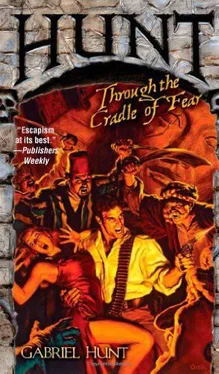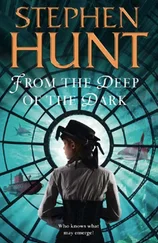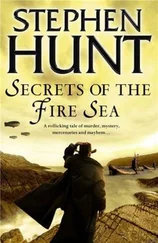Gabriel Hunt - Hunt Through the Cradle of Fear
Здесь есть возможность читать онлайн «Gabriel Hunt - Hunt Through the Cradle of Fear» весь текст электронной книги совершенно бесплатно (целиком полную версию без сокращений). В некоторых случаях можно слушать аудио, скачать через торрент в формате fb2 и присутствует краткое содержание. Год выпуска: 2011, Издательство: Dorchester Publishing Co., Inc., Жанр: Старинная литература, на английском языке. Описание произведения, (предисловие) а так же отзывы посетителей доступны на портале библиотеки ЛибКат.
- Название:Hunt Through the Cradle of Fear
- Автор:
- Издательство:Dorchester Publishing Co., Inc.
- Жанр:
- Год:2011
- ISBN:нет данных
- Рейтинг книги:3 / 5. Голосов: 1
-
Избранное:Добавить в избранное
- Отзывы:
-
Ваша оценка:
- 60
- 1
- 2
- 3
- 4
- 5
Hunt Through the Cradle of Fear: краткое содержание, описание и аннотация
Предлагаем к чтению аннотацию, описание, краткое содержание или предисловие (зависит от того, что написал сам автор книги «Hunt Through the Cradle of Fear»). Если вы не нашли необходимую информацию о книге — напишите в комментариях, мы постараемся отыскать её.
Hunt Through the Cradle of Fear — читать онлайн бесплатно полную книгу (весь текст) целиком
Ниже представлен текст книги, разбитый по страницам. Система сохранения места последней прочитанной страницы, позволяет с удобством читать онлайн бесплатно книгу «Hunt Through the Cradle of Fear», без необходимости каждый раз заново искать на чём Вы остановились. Поставьте закладку, и сможете в любой момент перейти на страницу, на которой закончили чтение.
Интервал:
Закладка:
“But you enjoyed it.”
“And now I know how to reload a rifle or hook up a climbing harness or change a flat tire—”
“Oh, that, too?”
“I’m a whiz with flat tires.” She snapped her fingers. “On and off like that.”
“Is there anything you can’t do?”
“Wait tables,” she said. “I’m a real bad waitress. Did it for a summer, and my god, I was awful. Made no tips.”
“All right,” Gabriel said. “Anything else?”
She bent over him, brought her lips close to his. “Taking no for an answer. Not getting what I want. I’m terrible at that.”
Gabriel smiled. “I’m not too good at it myself,” he said.
They landed in Kurunegala, on a private airstrip near the train depot. The town was centrally located at the intersection of the A6 and A10 motorways, within reach of all parts of the country. Dambulla was just thirty miles away to the northeast, and the spot marked on the map, Gabriel estimated, would be another ten miles or so past that.
On the way out of the plane, he rummaged through the emergency supplies cabinet by the door. Flares, life jackets, a long-handled flashlight—plenty of things that might be useful in a pinch. No ammunition for a Colt Peacemaker, though. That would have been too much to hope for.
Gabriel asked the pilot if he could grab a few things, and the pilot nodded. “Whatever you need. We’ll restock at the hangar.”
Gabriel took a couple of items, handed some to Sheba. Then he handed a cardboard box to the pilot. There’d been a rack of shipping supplies against one wall of the plane and he’d prepared the package while they were in flight. The account number he’d filled in was the Hunt Foundation’s and the address the package was going to was the Discoverers League building in New York. No point lugging two guns around when one of them was empty. And Andras had been right. The Colt was an antique, one that (the story went) had once belonged to either Wyatt Earp or Bat Masterson. Who knew if it was true—but if he wasn’t going to be able to use the thing, he might as well keep it safe.
The pilot smiled as he accepted the package. “It’ll be there tomorrow,” he said. “Guaranteed.”
They stepped out into ninety-degree heat and humidity so powerful that a layer of moisture formed on their skin in seconds. It was late afternoon, so they were at least spared the glare of the sun directly overhead, but walking through the damp, warm air felt uncomfortable enough. In the distance, beneath the thrumming of airplane and truck engines, they heard a raucous chorus of chirps and caws mixed with the periodic screech of a monkey.
Kurunegala was shaped roughly like a flat-bottomed bowl, the plain the town was built on being surrounded by tall rock outcroppings the locals had named after the animals they resembled. The town’s name itself meant “Tusker Rock,” since the tallest of the outcroppings, a grim thousand-foot cliff, was said to resemble a kurune, a tusked elephant. Gabriel squinted, but he couldn’t see it. There was also a Tortoise Rock, a Goat Rock, a Beetle Rock, an Eel Rock, and a Monkey Rock, all of which looked to Gabriel like rocks. There was even (the railroad stationmaster told Gabriel in a fit of garrulousness) a Yakdessa Rock, at which point Sheba needed to translate for him since the stationmaster was at a loss to explain what sort of animal a Yakdessa might be.
“It’s not an animal,” Sheba said. “It’s a man. Like a shaman—he would help afflicted people who were possessed by Yak. ”
“Possessed by yak,” Gabriel said.
“It’s the name of the Devil in Sinhala,” Sheba said.
“That certainly makes more sense,” Gabriel muttered.
He wasn’t used to not being able to speak the local language well enough to get by. Over the years he’d picked up at least a few words and phrases in most languages and was passably fluent in more than a dozen. But he’d never had the need or the opportunity to pick up Sinhala or Tamil, the languages of Sri Lanka. The one time he’d been here he’d managed to get by with a mixture of English, Urdu, and hand gestures. And pistol gestures, when he’d finally tracked down the statue. Those were understood everywhere.
He snuck a glance at the tracking device Lucy had given him, then returned it to his pocket. DeGroet was just 141 miles northwest. And closing.
“Can we use your phone?” Gabriel asked the stationmaster, a younger man no more than five feet tall who squinted up at him myopically any time he didn’t understand what he was hearing, almost as though it were his eyes that were at fault. He was squinting now. “Your telephone. We need to make a telephone call, to Dambulla.”
“Dambulla?”
“Yes, Dambulla.”
“Train does not go.”
“No, I know that,” Gabriel said. “We want to use—”
“Highway,” the stationmaster said. “You must drive.” And he made steering wheel motions with his hands.
“You want to try?” Gabriel asked Sheba.
“If they’d had telephones back when they had yakdessas,” she said, “I’d know the word for it.”
Gabriel mimed picking up a phone receiver and dialing a number, then realized that gesture might not mean anything anymore, not to someone raised on cell phones. He mimed unfolding a cell phone and talking into it. The stationmaster’s eyes unclenched happily. He reached under his counter and pulled out a phone with a scratched and faded plastic case. He opened it, pressed a button, and handed it over.
Gabriel punched in a number he remembered well from his last time here and was relieved to hear a woman’s voice answer on the third ring. “’Allo,” she said, a hint of a French accent surviving the transit through the cheap loudspeaker.
“Dayani, this is Gabriel Hunt,” Gabriel said.
“Gabriel! My goodness. How are you? Are you thinking of coming back to our island for a visit sometime?”
“Actually, I’m in Kurunegala,” he said, “right now. How would you feel about dropping everything you’re doing and driving out here to pick me up?”
She didn’t miss a beat. “I’m not sure my coworkers will like it so much, but I would feel just fine about it. Want to wait for me by the clock tower? I can be there in forty minutes.”
“I wish we could,” he said, thinking about his ankle. Taped up, it did hurt less, but it still hurt, and waiting would feel better than walking. “But we can’t. We’re going to start walking along the A6; just look for us on the side of the road.”
“Are you in some sort of trouble, Gabriel?”
“Some sort,” he said.
“ Naturellement, ” she said. “I’m leaving now.” And the connection broke.
Gabriel handed the phone back to the stationmaster.
“You…go to Dambulla?” the young man said. Gabriel nodded. “You go quick. Quick? Understand? Before rains come.”
“Rains,” Gabriel said.
The man squinted, searching for a word. “Later, big rains,” he said. Then his face relaxed. He knew the word he wanted.
“Monsoon,” he said.
Chapter 22
“This woman who’s picking us up,” Sheba said, and Gabriel said, “Dayani.”
“Who is she?”
They were walking along the side of the highway separating Kurunegala from Dambulla, a long, straight stretch of asphalt that cut like a knife blade through the heavy jungle cover that began in earnest just outside the town. Less than a mile from the train station, you couldn’t see anything in any direction but leaves and vines and trunks and undergrowth. That, and the occasional animal passing in your peripheral vision, the occasional car zooming past on the road.
“She’s a translator,” Gabriel said. “Spent ten years working for UNESCO out of Paris—that’s where I met her. She transferred back here a year or so ago to work on a set of documents discovered at the Golden Temple.”
Читать дальшеИнтервал:
Закладка:
Похожие книги на «Hunt Through the Cradle of Fear»
Представляем Вашему вниманию похожие книги на «Hunt Through the Cradle of Fear» списком для выбора. Мы отобрали схожую по названию и смыслу литературу в надежде предоставить читателям больше вариантов отыскать новые, интересные, ещё непрочитанные произведения.
Обсуждение, отзывы о книге «Hunt Through the Cradle of Fear» и просто собственные мнения читателей. Оставьте ваши комментарии, напишите, что Вы думаете о произведении, его смысле или главных героях. Укажите что конкретно понравилось, а что нет, и почему Вы так считаете.












